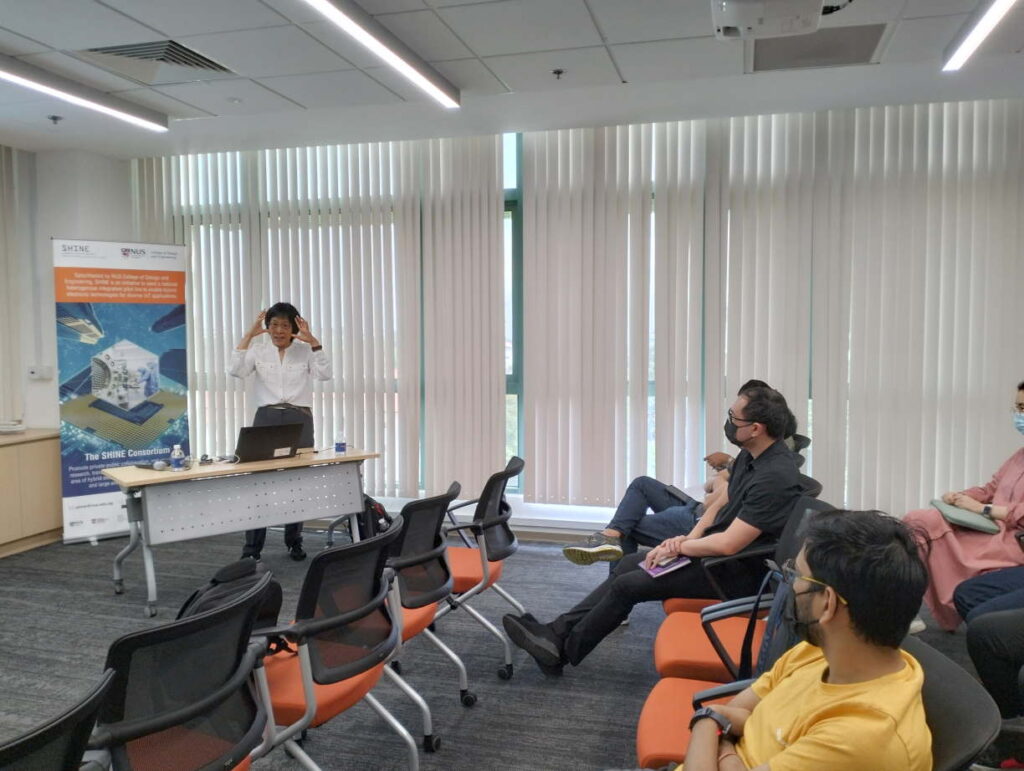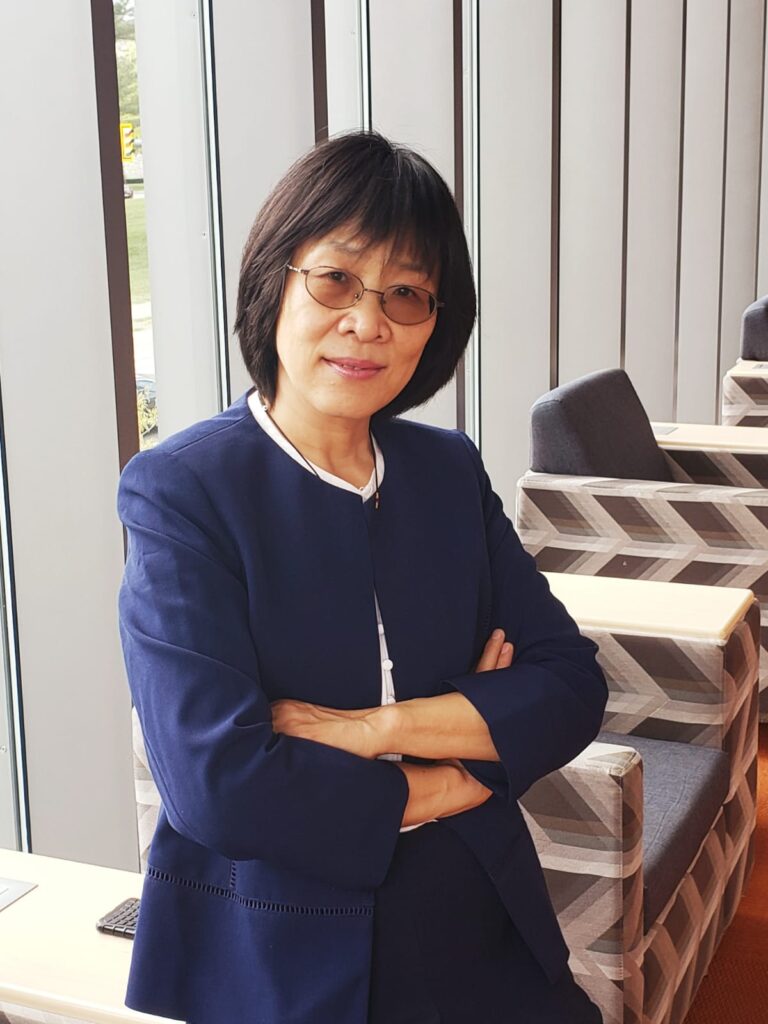AI Hardware Talk: From Device to Architecture, How Next-Generation Hardware is Reshaping AI
Date: 21 December 2022
Time: 10:00 am to 11:00 am
Venue: Block E6, #06-02, 03
Eureka Room 1 & 2 , 5 Engineering Drive 1, Singapore 117608
Post Event Brief
On Dec 21 SHINE organized the AI Hardware Talk given by Dr. Jin-Ping Han, a research staff member of IBM T.J. Watson Research Center at the campus of the College of Design and Engineering. The one-hour session gathered about 35 attendees from NUS and industry with research backgrounds in the field of microelectronics and neurocomputing. The talk commenced at 10:00 am with Prof Aaron Thean, Director of the SHINE centre, kicking things off.

This includes the areas of digital AI, analog AI hardware development with in-memory computing, as well as chiplet-to-chiplet acceleration. Significant challenges for real-world large-scale DL applications in the frontier of analog AI hardware development were highlighted, especially with regard to non-ideal characteristics of the analog AI device elements, such as flicker noise and system noise, weight drifting, as well as mismatch although intensive effort made in many groups.
Followed on, Dr Jin-Ping further shared the significant impact of injecting 1/f defect fluctuation noise in hardware aware refrain to improve flick tolerance for the resistive process unit deep learning interference simulation based on phase change material cell. She also discussed new methodologies for a mismatch on PCM array cells, full swing of mismatch on neighboring 4R unit PCM cells, quantitative assessment of mismatch as well as a potential mechanism of heater size dependence.
A lively discussion ensued towards the end of the talk with numerous interesting questions raised and valuable comments from the audience. The talk wrapped up at 11.15 am with Prof Aaron Thean presenting Dr Jin-Ping with a gift as a token of appreciation.
About the Speaker

Dr Jin-Ping Han received her PhD degree in electrical engineering from Yale University in 2002. After a postdoc at NIST, she switched to industry in 2004 and became senior engineer and then technical leader employed by Infineon and IBM respectively within the IBM Alliance. Dr Jin-Ping Han has led the development of advanced technologies in eSiGe, HKMG, analog devices as well technology qualification, which had a critical impact on major products such as the IBM servers as well as mobile and automobile electronics components produced by IBM partners such as Samsung and ST Microelectronics. Since 2015, Dr Jin-Ping has dedicated herself to leading research projects that are fundamental to future AI technologies at IBM T.J. Watson Research Center as a research staff member. Dr Jin-Ping Han has co-authored/co-presented 138 papers and conference/institute presentations in total, including 58 peer-reviewed papers, 35 invited talks, and 2 invited book chapters. She has co-invented ~120 U.S. and international patents. Dr Jin-Ping Han’s achievements have been recognized by various awards, including Technology Rising Star Women of Color STEM Outstanding Achievement Award (OAA, US, 2021), the IBM Outstanding Technical Achievement Award, Infineon Inventor of the Year Award, and the National All-Collegiate Inventors Award (US) sponsored by BF Goodrich Corporation and the Inventors Hall of Fame.
Location Map
Driver is advised to enter via Engineering Drive 1 and park at cark park C at Block E6.

- Home
- AI Hardware Talk: From Device to Architecture, How Next-Generation Hardware is Reshaping AI Post Event Report
Singapore Hybrid-Integrated Next-Generation μ-Electronics (SHINE) Centre
- Block E6, #E6-5-3, 5 Engineering Drive 1, Singapore 117608
- +65 6601 8522
- shine@nus.edu.sg

